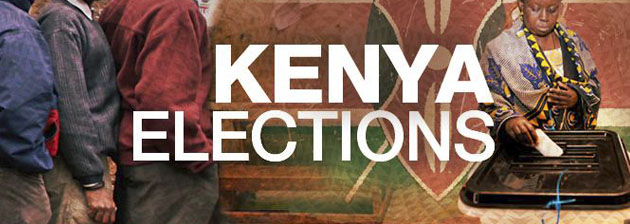By Patrick Rukwaro, Internews in Kenya.
Two stories filed by CNN journalist Nima Elbagir informed the way Kenyans perceived the international media during the General Election in early March. The first, Kenyans armed and ready to vote, was broadcast three days before the election while the second, which aired on the eve of election, focused on the killing of at least 10 policemen in Mombasa. The stories invited fierce criticism on social media.
There was nothing glaringly untrue about the stories, but the avalanche of criticism and demands that CNN withdraw them was an indication that Kenyans wanted the media to exercise self-restraint in reporting events surrounding the election.
The Kenyan media, having been accused of fanning the violence that followed the 2007 election was cautious this time round. Michela Wrong, a Nairobi based journalist and author, said of Kenyan journalists: “the Kenyan media’s self-restraint reveals a society terrified by its own capacity for violence.”
Did the media sensor itself too much? The jury is out. But it is true that nationalistic feelings in Kenya have risen perhaps to pre-independence levels. In the lead up to the election, the West was portrayed not as partners but imperialists, and any statement they made seen as an imposition.
A cartoon by cartoonist Gado in the Daily Nation of March 14th captures how much the Jubilee pair of Uhuru Kenyatta and William Ruto capitalized on nationalism in their campaign. The two are caricatured in a phone conversation with Kofi Anan thanking him “for your contribution to our campaign” adding for good measure “Please pass our regards to Madame Bensouda.”
The general opinion among the followers of Uhuru and Ruto was that the ICC indicted the wrong people. Both Uhuru and Ruto are on record as telling crowds during the campaign that they were not contesting the 2007 presidential election and it is those who were contesting who should have been put on trial. The loathing of the West among Jubilee followers was not helped by what was seen as impartial comments by the US government and comments in some western newspapers that seemed to warn Kenyans against voting for the ICC indictees. As one observer said, every time the international community commented, a few votes were cast in favor of Jubilee.
The fear of being accused of inciting violence left the local media impotent. During the briefing after announcing the final presidential results, the Independent Electoral and Boundaries Commission (IEBC) Chairman Isaack Hassan invited journalists to ask questions. There was a long pause before a local journalist from China Central Television (CCTV) asked a question. The journalists did not ask any questions during g briefings by election observer either. Not that the Kenyan media is famous for asking questions during press conferences, but this was a presidential election which needed serious prodding.
The caution with which the Kenyan media reported the process “reveals a society terrified by its own capacity of violence” wrote Michela Wrong.
The paranoia with violence and peace activism was not confined to journalists alone. Media owners and managers are said to have agreed not to air statements that might inflame ethnic passions or violence. And to cap it all, the Government issued a veiled threat to deport foreign journalists operating without a valid license. No one questioned how and why the journalists could have been operating as such without the prior knowledge of the same Government.
The foreign journalists were being judged and vilified according to the standards set by CNN’s Nima Elbagir but in the real sense the international media was fairly unbiased. The New York Times warned that the Obama administration may be the one to face tough choices. “but when the ballot counting began, Uhuru Kenyatta surged ahead for president and stayed out front…..soon the Obama administration and its allies could face a tough choice made even more complicated by the appearance of taking sides a candidate who may very well win” it opined. Reuters reported that Kalonzo Musyoka requested that the ballot counting stops mid-way as did BBC. Yet, Kenya’s ‘twitterati’ and ‘facebookers’ are furious with all foreign media. As Michela Wrong observes, “The fury seems exaggerated….Western reports have attracted undue interest…because domestic coverage has been so lifeless.”
The attacks on Western media aside, the violence, which was witnessed in the streets in the past, is now being fought on-line. The AP reports that tribal lines are being drawn over who won the election “but unlike the bloody violence that scarred the country five years ago, this time the fighting is online.” The virtual feuding, it is feared “could trigger real-life fighting.” If this happens, it will have nothing to do with Nima Elbagir’s reports on CNN, but perhaps a realization of Ngugi wa Thiongo’s observation published in the op-ed page of New York Times that in this election, “the real winner was a man who wasn’t on the ballot: Daniel arap Moi” for aren’t Uhuru, Ruto, Kalonzo and even Raila albeit for only a short period, all political protégés of Moi?




